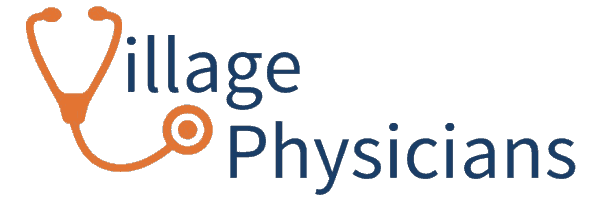10 Essential Tips for a Healthier, Longer Life
Transform Your Health with Simple Dietary Changes
Discover how small adjustments to your diet can lead to significant improvements in your overall health and longevity. Embrace a lifestyle that prioritizes wellness and vitality.
Start With Making Healthier Choices
Transitioning to a diet with less processed food can be challenging, but the benefits are undeniable. Start by gradually replacing processed snacks with healthier alternatives, such as nuts, seeds, or fresh fruit. Cooking at home more often allows you to control the ingredients and portion sizes, ensuring that your meals are as nutritious as possible. These small changes can lead to significant improvements in your health and quality of life.
Start with Fibre-Rich Carbohydrates
The Foundation of a Balanced Diet
Incorporating higher fibre starchy carbohydrates into your meals is a fundamental step towards better health. These carbohydrates, found in foods like whole grains, potatoes with skins, and legumes, provide essential nutrients and energy. They help maintain stable blood sugar levels, support digestive health, and keep you feeling full longer, reducing the temptation to snack on unhealthy options. By making these foods a staple in your diet, you lay the groundwork for a healthier lifestyle.
The Power of Fruits and Vegetables
Enhancing Longevity Through Plant-Based Nutrition
Incorporating a variety of fruits and vegetables into your daily diet is crucial for maintaining optimal health and promoting longevity. These nutrient-dense foods are rich in essential vitamins, minerals, and antioxidants that support the body’s immune system, reduce inflammation, and lower the risk of chronic diseases. By filling half your plate with colorful produce, you not only enhance the flavor and texture of your meals but also provide your body with the necessary tools to fight off illnesses and age gracefully.
Start with Fibre-Rich Carbohydrates
The Dangers of Processed Foods
High-processed foods, often laden with unhealthy fats, sugars, and preservatives, can have detrimental effects on your health. Regular consumption of these foods is linked to an increased risk of obesity, heart disease, and diabetes. By reducing your intake of processed foods and opting for whole, natural ingredients, you can improve your overall health and well-being. Emphasizing fresh, unprocessed foods in your diet helps maintain a healthy weight, supports digestive health, and provides your body with the nutrients it needs to function efficiently.
Why Choose Whole Foods?
Whole foods, such as fresh fruits, vegetables, whole grains, and lean proteins, are packed with essential nutrients that processed foods often lack. These foods support a balanced diet, helping to regulate blood sugar levels and reduce the risk of chronic diseases. By choosing whole foods over processed options, you are making a conscious decision to nourish your body with the best possible fuel, promoting long-term health and vitality.
The Benefits of Eating More Fish
Why Oily Fish is Essential for Health
Incorporating more fish into your diet, especially oily fish like salmon, mackerel, and sardines, offers numerous health benefits. These types of fish are rich in omega-3 fatty acids, which are essential for heart health, brain function, and reducing inflammation. Regular consumption of oily fish has been linked to a lower risk of heart disease, improved cognitive function, and better joint health. By including at least two servings of fish per week, you can significantly enhance your overall health and well-being.
Reduce Saturated Fats and Sugars
Cutting Down on Saturated Fats and Sugars for Optimal Health
Reducing your intake of saturated fats and sugars is crucial for maintaining a healthy lifestyle. Saturated fats, often found in butter, fatty cuts of meat, and processed foods, can raise cholesterol levels and increase the risk of heart disease. Similarly, excessive sugar consumption can lead to weight gain, diabetes, and other metabolic disorders. By choosing healthier alternatives such as lean meats, whole grains, and natural sweeteners, you can significantly improve your overall health and well-being. Making these changes not only supports heart health but also helps in maintaining a balanced diet, crucial for long-term wellness.
Limit Daily Salt Intake
Eating Less Salt: A Key to Better Health
Consuming too much salt can lead to high blood pressure, which is a major risk factor for heart disease and stroke. It is recommended that adults consume no more than 6g of salt per day. To achieve this, try cooking with herbs and spices instead of salt, and be mindful of the salt content in processed and packaged foods. Reading labels and choosing low-sodium options can make a significant difference. By reducing your salt intake, you can help maintain healthy blood pressure levels and reduce the risk of cardiovascular diseases, promoting a healthier lifestyle.
Stay Active for a Healthy Weight
The Importance of Physical Activity and Healthy Weight Maintenance
Regular physical activity is essential for maintaining a healthy weight and overall well-being. Engaging in activities such as walking, cycling, or swimming can help burn calories, improve cardiovascular health, and boost mood. It’s important to find an activity you enjoy to make it a regular part of your routine. Coupled with a balanced diet, staying active helps prevent obesity and related health issues. Remember, even small changes like taking the stairs instead of the elevator can contribute to a more active lifestyle. Prioritizing physical activity not only aids in weight management but also enhances quality of life.
Drink More Water
Stay Hydrated for Optimal Health
Proper hydration is crucial for maintaining overall health and well-being. Water plays a vital role in regulating body temperature, transporting nutrients, and removing waste. It’s important to drink enough fluids throughout the day to keep your body functioning at its best.
Dehydration can lead to fatigue, headaches, and impaired cognitive function. To avoid these issues, aim to drink at least eight glasses of water daily. Remember, beverages like herbal teas and water-rich foods such as fruits and vegetables also contribute to your daily fluid intake.
The Power of a Nutritious Breakfast
Start Your Day Right: Never Skip Breakfast
Breakfast is often referred to as the most important meal of the day, and for good reason. It provides the energy and nutrients needed to kick-start your metabolism and improve concentration throughout the morning. A balanced breakfast can help you maintain a healthy weight and reduce the risk of chronic diseases.
Incorporate whole grains, lean proteins, and fruits into your morning routine to ensure a nutritious start. Skipping breakfast can lead to overeating later in the day, so make it a priority to fuel your body with wholesome foods each morning.
Mindful Eating Habits
Reduce Dining Out and Embrace Home Cooking
Schedule Your Personalized Health Consultation Today
Take the first step towards a healthier lifestyle by scheduling a personalized dietary consultation with our expert team. Our dedicated physicians are here to provide tailored advice and support, helping you achieve your wellness goals. Don’t wait—book your appointment now and start your journey to better health.
Village Physicians
Nasiya Ahmed, MD
9090 Gaylord Drive, Suite 200
Houston, Texas 77024
Tele: (832) 930-7877
Board Certified Internal Medicine,
Geriatrics, Hospice and Palliative Medicine
For more information:
- Call us at: (832) 930-7877
- Already a patient? Message us via our Patient Portal
- Email us at: villagephysicians@gmail.com
- Book online appointments with Nasiya Ahmed, MD
When emailing us, please do not include any Protected Health Information. Protected Health Information should only be communicated or exchanged with this healthcare provider by an approved secure method, by telephone or in person.
Healthcare Disclaimer - “The information included on this site is for educational purposes only. It is not intended nor implied to be a substitute for professional medical advice, diagnosis or treatment. Always consult a physician or other qualified healthcare provider if you have any questions regarding a medical condition or treatment plan or if you have or suspect you have a medical condition. NEVER DISREGARD PROFESSIONAL MEDICAL ADVICE OR DELAY SEEKING MEDICAL TREATMENT BECAUSE OF SOMETHING YOU HAVE READ ON OR ACCESSED THROUGH THIS WEBSITE.
Use of this website does not create a physician-patient relationship. VILLAGE PHYSICIANS IS NOT RESPONSIBLE NOR LIABLE FOR ANY ADVICE, COURSE OF TREATMENT, DIAGNOSIS OR ANY OTHER INFORMATION, SERVICES OR PRODUCTS THAT YOU OBTAIN THROUGH THIS WEBSITE.”

